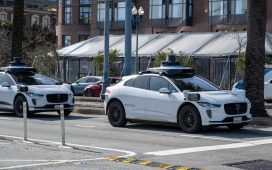Joe Biden has been criticised for making cars unaffordable after he unveiled a “draconian” plan to force through a tenfold increase in electric car sales within the decade.
Strict new emissions limits were announced by the Environmental Protection Agency on Wednesday that are intended to boost sales of new battery-powered vehicles to at least 54 per cent by 2030.
By 2032, they are expected to make up two-thirds of the market. Electric vehicle cars currently account for 5.8 per cent of sales in the US.
The rules do not explicitly mandate greater EV manufacturing, but the tough emissions targets are expected to hasten a transition as automakers turn to EVs as the only viable way to remain in compliance.
Republicans have criticised the move.
“Yet another draconian rule from the Biden Admin,” said congressman Dan Newhouse. “From gas stoves to vehicles, their anti-American energy policies put our nation on a dangerous path. It’s time for the government to stop over-regulating our lives and protect our energy independence.”
Myron Ebell, the director of the libertarian Competitive Enterprise Institute’s centre for energy and the environment, added: “The Biden administration is trying to bend every federal rule they can find to force people into buying EVs.”
“If Biden policies are successful, we will soon have a choice between buying an EV and not being able to afford a vehicle at all.”
Even some Democrats are not happy.
“Everybody cares about global warming,” said Congresswoman Debbie Dingell, a Democrat from the auto industry’s Michigan heartland. “[But] I’m hearing from too many people in this country — I mean, strong Democrats — that they can’t afford an electric vehicle.”
Since taking office Mr Biden has been pushing Americans to make the switch, even doing a photo call in which he was filmed driving an electric truck at breakneck speed.
The US lags far behind the UK in the switch away from the internal combustion engine despite the industry investing heavily in electric car production.
Some 16.2 per cent of cars sold in Britain last year were electric and the Government expects that to rise to 88 per cent of cars by 2032. However, in the US motorists drive greater distances, which means cars may have to be recharged during a long road trip – a time-consuming process.
Electric cars are also more expensive and there is still a shortage of charging points.
“Whether you measure today’s announcement by the dollars saved or the gallons reduced or the pollution that will no longer be pumped into the air, this is a win for the American people,” White House National Climate Advisor Ali Zaidi said.










